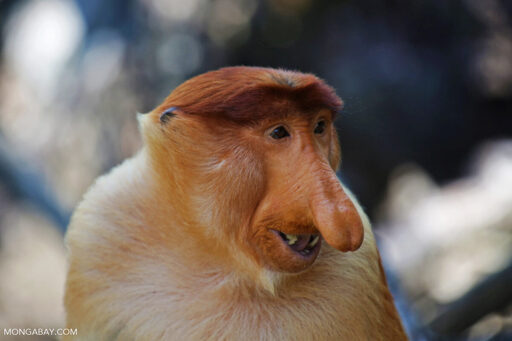With its long, pendulous nose, characteristic pot belly and large size, the odd-looking, leaf-eating proboscis monkey (Nasalis larvatus) may not feature on the list of the world’s cutest animals. Yet, this endangered primate, a Borneo native living along rivers and swampy mangrove forests, seems to have gained newfound appeal in recent years in the international wildlife trade, according to a study published in the journal Discover Animals. The researchers searched the internet for media reports of seizures, social media ads and legal trade data from CITES — the international wildlife trade agreement — relating to proboscis monkeys between 1999 and 2024. They found about a hundred individuals in the illegal trade, all from Indonesia. There was a marked uptick in the trade in the last decade, with nearly half of the individuals traded listed on social media platforms such as Facebook and Instagram. In addition, zoos in Indonesia were found to have increasingly acquired these monkeys since 2016, possibly from the wild. The researchers say this surge in trade could have repercussions for the conservation of this endangered species. Proboscis monkeys are legally protected in all three countries where they are found: Malaysia, Brunei and Indonesia. It is illegal to keep, buy or sell them or their parts. The species is also listed on CITES Appendix I, which prohibits all international commercial trade, except for exchanges between zoos and for scientific research. While proboscis monkeys have been on study co-author Vincent Nijman’s radar since his Ph.D. research nearly three decades…This article was originally published on Mongabay
From Conservation news via this RSS feed


